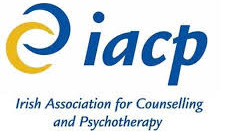Couples therapy and counselling have long been regarded as powerful tools for nurturing healthy, resilient relationships. While the concept may conjure images of couples in crisis, the reality is far more nuanced and hopeful: therapy is not merely a last resort, but a proactive step towards deeper connection, understanding, and personal growth. This article explores who can benefit from couples therapy, dispels common myths, and highlights the many advantages that professional counselling can offer to partners navigating the complexities of love.
In the LifeChange Psychotherapy & Counselling practice in Dublin, we see relationship difficulties as an opportunity for growth — not failure. With the right support, communication can improve, trust can be rebuilt, and understanding can deepen. If you are considering doing couples therapy or need to know more about its benefits, please read on.
Who Should Consider Couples Therapy?
- Many people assume that couples therapy is reserved for relationships teetering on the edge of collapse. In truth, couples therapy is appropriate for a wide range of situations, and its benefits extend far beyond the realm of major conflict or impending separation.
- Couples Experiencing Communication Issues: Communication is the bedrock of any healthy partnership. Yet, misunderstandings, recurring arguments, or difficulty expressing emotions can erode intimacy and trust over time. Couples who struggle to listen to one another, who feel unheard or misunderstood, or who frequently find themselves locked in unproductive arguments may find therapy invaluable.
- Partners Facing Life Transitions: Major life changes—such as moving in together, getting married, having children, relocating, or navigating a career shift—can put strain on otherwise stable relationships. Therapy offers a supportive space to process these changes, recalibrate expectations, and develop strategies for adapting together.
- Couples Recovering from Betrayal or Trust Issues: Infidelity, dishonesty, or breaches of trust can leave deep wounds. Couples therapy provides a structured, nonjudgmental environment in which both parties can express hurt, process emotions, and explore the path to forgiveness and renewed trust.
- Relationships Impacted by Mental Health or Addiction: When one or both partners struggle with anxiety, depression, addiction, or other mental health challenges, the repercussions often ripple through the relationship. Therapy helps couples develop empathy, coping mechanisms, and a unified approach to managing these difficulties.
- Couples Seeking to Deepen Intimacy: Not all couples who seek therapy are in trouble. Some simply want to enhance their emotional or physical intimacy, rekindle their connection, or explore new dimensions of their relationship. Therapy offers tools and insights for enriching partnership and rediscovering joy.
- Those Considering Separation or Divorce: When couples are contemplating ending their relationship, therapy can clarify whether separation is the best choice and, if so, how to do so respectfully and collaboratively—especially if children are involved.
- Pre-Marital and Early Relationship Counselling: Therapy isn’t just for established couples. Those embarking on a new relationship, considering moving in together, or preparing for marriage can benefit from discussing foundational topics such as values, expectations, finances, and communication styles.
Common Myths About Couples Therapy
Despite its proven benefits, misconceptions about couples therapy persist. Addressing these myths can help couples make informed decisions about their relationship care.
- Myth: Therapy is a sign of failure. In reality, seeking help is a sign of commitment to growth and mutual well-being. Proactively addressing issues can prevent larger problems from developing.
- Myth: Only dysfunctional relationships need therapy. Every relationship can benefit from enhanced communication and understanding, regardless of its current health.
- Myth: The therapist will take sides. Therapists are trained to maintain neutrality, facilitating fair and balanced dialogue between partners.
- Myth: Therapy is only for married couples. Couples therapy is appropriate for all types of relationships, including dating, cohabiting, engaged, and long-term partners.
- Myth: Therapy is a quick fix. The process of change takes time, effort, and patience; therapy provides the tools, but couples must do the work together.
The Benefits of Couples Therapy and Counselling
Couples therapy can be transformative, nurturing not only the relationship but also the individuals within it. The advantages extend across emotional, psychological, and practical domains.
Enhanced Communication
One of the most immediate benefits of couples therapy is improved communication. Guided by a trained professional, partners learn to express their needs and feelings constructively, listen actively, and interpret each other’s cues with empathy. This can lead to fewer misunderstandings, reduced conflict, and a greater sense of connection.
Strengthened Emotional Bond
Therapy offers a safe space for vulnerability, where couples can explore their deepest fears, desires, and hopes. As partners share openly—often for the first time—emotional intimacy flourishes. This closeness is the foundation for resilience in the face of life’s inevitable challenges.
Conflict Resolution Skills
Disagreements are a natural part of any relationship. The difference between healthy and unhealthy partnerships often lies in how conflict is managed. Couples therapy teaches practical strategies for resolving disputes respectfully, finding compromise, and avoiding patterns of blame or defensiveness.
Healing from Past Wounds
Unresolved issues from the past can linger, coloring current interactions and undermining trust. Therapy provides the structure and support necessary to address old hurts, whether from within the relationship or from previous life experiences, fostering forgiveness and closure.
Rekindling Romance and Passion
It is not uncommon for relationships to lose their spark over time. Counselling can help couples rediscover what drew them together, encourage new ways of connecting, and reignite passion that may have faded amidst daily routines.
Building a Foundation for the Future
Couples therapy is not just about solving current problems—it’s about equipping partners with tools for lifelong partnership. Couples learn how to support each other’s growth, navigate future challenges, and sustain long-term satisfaction.
Managing External Stressors
Relationships do not exist in a vacuum. Work, family, financial pressures, and health issues can all impact partnership dynamics. Therapy helps couples develop strategies for managing these external stressors together, creating a united front and reducing the risk of burnout or isolation.
Support for Parenting and Family Dynamics
For couples with children, therapy can address parenting styles, family roles, and intergenerational issues. It also provides guidance for blended families or those facing challenges with in-laws, helping couples establish healthy boundaries and cooperative approaches.
Personal Growth and Self-Awareness
Individuals often discover new aspects of themselves through the therapeutic process. By examining relationship patterns, beliefs, and emotions, partners can cultivate greater self-awareness and personal development, enhancing not only their romantic relationship but also their wider social and professional lives.
What to Expect From Couples Therapy at our LifeChange Practice in Dublin
At LifeChange, our highly experienced team of relationship and couples therapists understand that embarking on couples therapy may feel daunting, especially for those unfamiliar with the process. Typically, therapy begins with an initial assessment, during which the therapist learns about the couple’s history and goals. Sessions are collaborative, focusing on communication, conflict resolution, emotional exploration, and practical skills.
Therapists may employ a variety of approaches, such as Emotionally Focused Therapy (EFT), the Gottman Method, or Cognitive Behavioral Therapy (CBT), tailoring techniques to the specific needs of each couple. Homework assignments—such as journaling, exercises, or communication tasks—may be given to reinforce progress outside of sessions.
Conclusion
Couples therapy and counselling are not signs of weakness or failure, but acts of courage and care. Whether a relationship is in crisis, struggling with communication, facing major decisions, or simply seeking greater intimacy, therapy offers a pathway to understanding, growth, and lasting fulfillment. By embracing professional support, couples can transform patterns, heal wounds, and forge a partnership rooted in empathy, respect, and love.
Ultimately, any couple invested in the health and future of their relationship—regardless of status, orientation, or circumstance—can benefit from the insights and skills that therapy provides. The journey may require effort and vulnerability, but the rewards are profound: a stronger, more harmonious, and deeply connected life together.






